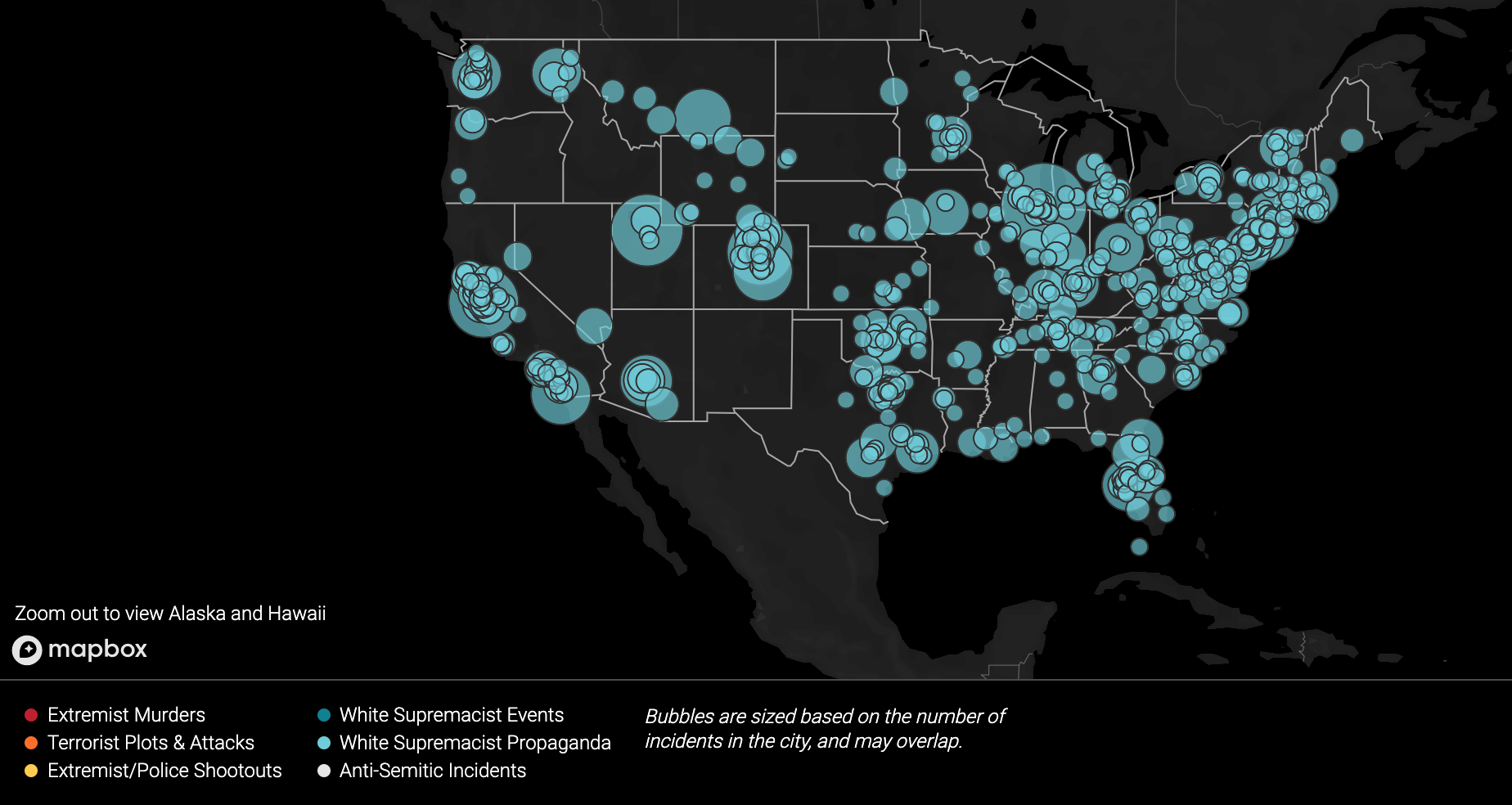It is known that when people are around other like-minded people, they are more likely to have heightened or extreme views on political and personal matters. Thanks to social media outlets and the mainstream news, it has become easier for people to find others who share the same views and values as them. While this may be beneficial in certain ways, it has caused the great political polarization and social divide we see in American politics today. There is no doubt that the giant political parties we see in modern American politics have greatly benefited from increased polarization amongst voters, but unfortunately, this polarization has revealed a nasty side of America that has not been exposed in quite some time. Although President Trump may not recognize this, White Nationalism has become a common threat to American democracy.
According to the Anti-Defamation League, “2018 data shows a 182% increase of incidents (white supremacist propaganda) from the previous year, with 1,187 cases reported, compared to 421 in 2017.” The Anti-Defamation League classifies propaganda as everything from veiled white supremacist language to explicitly racist images and words, often featuring a recruitment element, and frequently targeting minority groups, including Jews, Blacks, Muslims, non-white immigrants and the LGBTQ community. Propaganda like this is harmful to American democracy because it is a result of polarization. Polarization is a direct threat to American democracy because it weakens democratic norms and instituitions. The problem with White Nationalism is that it creates an “us-versus-them” style of government that mirrors populism. This is dangerous for our democracy because it gives both White Nationalists and other extremist groups the feeling that they must win at all costs and that anyone who disagrees with anything that they say is a member of the other team. This, in turn, makes American’s question the moral stability and credibility of their leaders which in turn weakens the democratic system.
Fighting off White Nationalism is also a threat to democracy in and of its own because of the First Amendment. Some would argue that censoring white nationalists is, in fact, a violation of our right to freedom of speech, which in turn is a direct threat to American democracy. Many different social media outlets are trying to combat posts that are considered hateful and racist. For example, according to Vox News, “Facebook is banning explicit praise, support or representation of white nationalism and white separatism on Facebook and Instagram, including phrases such as “I am a proud white nationalist,” following deadly attacks at two New Zealand mosques and a backlash from black history scholars and civil rights groups.” Posts like this are very hateful and cause much divide, but at the same time, the act of banning these posts is considered to be censorship which is why Facebook is having a hard time with the logistics of it.
In conclusion, there are many reasons why White Nationalism is wrong, but in order to put an end to it, we must understand where it came from. While it may be easy to claim it is a product of ethnocentrism, one must also understand that it comes from those who have felt betrayed by their once “white dominated” country. These dangerous feelings are what led to the increased polarization, populism, and propaganda that is eroding our democracy today.
Photo by the Anti-Defamation League.

Really interesting and frightening post. I wonder if some of the uptick in these incidents might also be the result of a simple uptick in the reporting of said crimes. Either way, there is no doubt that white nationalism is making a terrifying reentrance to modern politics. I also thought your point about the desire to put an end to this hateful and disgusting rhetoric could at times be at odds with particular racists’ first amendment rights. This is a confusing predicament and one that might not have an easy answer. How we address it might mean the difference in the seemingly everlasting fight against these terrible viewpoints.
Interesting point. The issue of erasing such harsh rhetoric seems to be rooted in the limits that define free speech and first amendment rights as well as the proper enforcement of such limits. I agree with your point that sharp polarization among different sides of the political spectrum may often seem like an all-or-nothing, zero-sum game. Such a realization, as can be seen with the heavily charged sentiment of exclusion among White Nationalist groups in America, may simply illuminate the need for the establishment of credible commitments among elected officials to properly mediate the tension between sharply divided political interests.